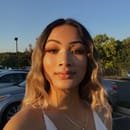Tattoos are scary. I change my mind all the time. My favorite food changes, my favorite songs rotate and every year I feel like a completely different human being. I grew up as a first-generation Asian-American, so my parents pretty much hated them when I was growing up. It was never a desire in me to rebel against them, but I always was intrigued by the idea of a tattoo.
At a ripe 20 years old, I decided to get my first tattoo. At this point, I have been brainstorming and even having dreams about getting one for about 6 months. The question wasn’t if I wanted one; it was more so when, what and where. I sat for many days, pondering what I wouldn’t regret having on my body in 50 years. I knew I wanted it to mean something to me, so you can imagine that the self-reflection took quite a bit of time. I always knew I wanted to do something for myself to commemorate and honor my overcoming of all the challenges I have faced earlier in life.
One day, I was sitting at my desk talking to my roommate about wanting a tattoo and complaining about knowing what I wanted it to be about but didn’t know what tattoo could represent it in a way that is unique to me. All of a sudden, I look up at my desk and see a book displayed called Know My Name by Chanel Miller. A flood of memories hit me from when I first discovered that author, book and what it represented, and I remembered telling myself back then that if I were to ever get a tattoo, it would be of this phrase. Here’s why:
Chanel Miller is an author who I came across while researching victim impact statements online. I came across various articles and videos about her releasing her victim impact statement and how it has changed her life. She is a sexual assault survivor and she was who got me through my case in high school, as I spent everyday rewatching the short film she made about her story.
The phrase “know my name” struck me immediately. To me, it is a powerful way of saying that I am not just a victim in this case. I am not just “Jane Doe,” and I do have a name. A lot of the court process is built around hiding the victim and it’s easy for our words to be regurgitated inaccurately, causing us to feel voiceless. During my case, I felt really lost. And after my case, I felt really betrayed. Chanel Miller is what grounded me and reassured me that I was not alone. She put my feelings into words and inspired me to write my own victim impact statement to read at the hearing.
The sentencing was the only time I was ever able to speak on my own behalf, and it was in front of the judge and the teacher who raped me years ago. I repeated Chanel’s words in my head every time I felt anxious or doubtful of myself. While reading my impact statement, the judge interrupted me many times, asking if I am almost done, and eventually just cut my entire statement short altogether.
Having “Know My Name” as my first tattoo means everything to me. I spent a lot of my life trying to forget what happened to me, but the truth is that it will always be a part of me. “Know My Name” is a way for me to take that power back into my own hands and reclaim my story, not as a flaw in my past but instead as a part of what makes me who I am today. Every day when I change my clothes, I see the phrase and am reminded of how much power I hold inside of me.
If you or someone you know has been sexually assaulted, you can call the National Sexual Assault Telephone Hotline at 800-656-HOPE (4673) or visit hotline.rainn.org.





